Breadcrumb navigation
In Conversation with Kryštof Kohout, winner of the 2025 Guildhall Wigmore Recital Prize
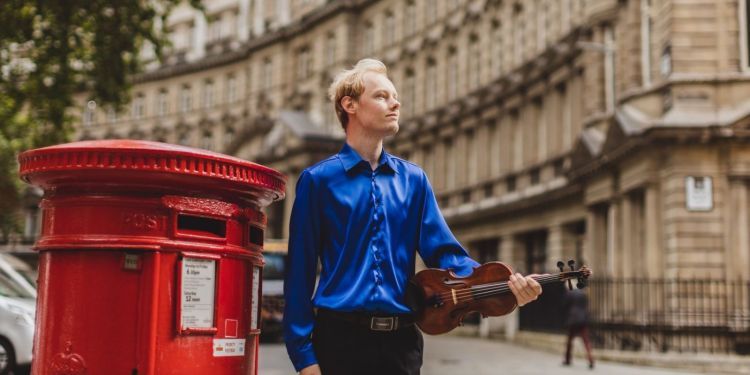
In Conversation with Kryštof Kohout
Guildhall violinist Kryštof Kohout will soon take centre stage at London’s Wigmore Hall as the 2025 winner of the Guildhall Wigmore Recital Prize. The award, given annually to an outstanding musician from Guildhall School of Music & Drama, offers the opportunity to perform a full recital at one of the world’s most prestigious concert venues.
Award-winning Czech violinist Kryštof Kohout is known for his expressive artistry, technical brilliance and compelling performances, both as a soloist and chamber musician. A founding member of the acclaimed Fibonacci Quartet – an ensemble formed at Guildhall – he has performed widely across Europe.
Ahead of his recital at Wigmore Hall on Sunday 27 July, where he’ll be joined by pianist Edward Leung, we spoke with Kryštof about the music that inspires him, his artistic journey, and the role Guildhall has played in shaping his path.
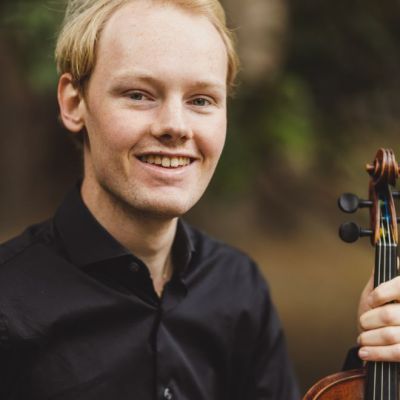
Congratulations on winning the 2025 Guildhall Wigmore Prize! What does this opportunity mean to you?
Thank you! It was a real privilege to win the Guildhall Wigmore Recital Prize this year – Guildhall has been such a significant part of my journey so far, so to receive this recognition feels incredibly meaningful. The prize has given me the opportunity to present a full evening recital at Wigmore Hall – something I’m incredibly excited about. The concert takes place on Sunday 27 July, and I can’t wait to share this very personal programme with the audience.
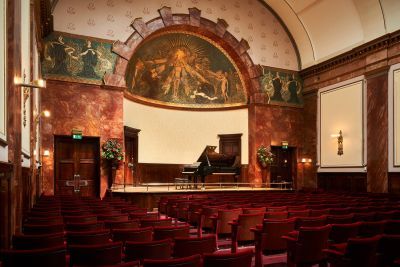
You’ve curated a programme that spans Central European music. What inspired your choices?
The brilliant thing about this recital is that I had complete freedom to choose my programme – and I could go with themes that are very close to my heart. The programme is inspired by the rich musical heritage of Central Europe and the various influences that meet in this region. There is music from Hungary, Germany, and two Czech pieces that have not been performed in the UK before. They are all pieces I love and that all inspire me in different ways, and I think that together they offer the audience something truly special and heartfelt.
Can you tell us more about Bartók’s Sonata for Solo Violin, which opens the programme?
For me, it’s one of the most incredible pieces ever written – especially for a solo instrument. It’s extraordinary what kind of body of music Bartók creates, and the sheer range of emotions he captures. I really feel this piece has inspired me over the past few years and been one of the sources I can come back to, and always find something new!
You’re also playing the Violin Sonata by Richard Strauss. What draws you to this work?
It’s such beautiful, romantic music – very warm and deeply emotional. The second movement, which is an improvisation on a theme by Beethoven, has some of the most intimate and magical musical moments I know. The whole sonata was written in the year Strauss met his future love, and that powerful sense of new love and emotional intensity runs through the whole piece. Its symphonic sweep and energy make it an uplifting and celebratory conclusion to the programme.
The programme features two UK premieres of music by Czech composers who aren’t well known in this country. Why was that important to you?
Yes – there is so much Czech music that is not widely published and therefore difficult to access for both artists and audiences. Whenever I can, I always enjoy doing a bit of detective work, finding this music and bringing it to audiences! First, there’s Romance élégiaque by Váša Příhoda. He was a fascinating figure – a great violinist and a brilliant composer. Much like Paganini, he had this incredible virtuosity that absolutely stunned people, but on top of that his performances and compositions are so human and honest. He performed all around the world, and even made one of the earliest recordings of Dvořák’s Violin Concerto. He was a real champion of Czech music and left a major legacy, even though he isn’t widely remembered today.
And the other Czech composer on your programme is Luboš Fišer. What’s the story behind his sonata Hands, and what can the audience expect from the piece?
It’s a fascinating work. Fišer wrote it in the 1960s, when he was also becoming very successful as a film composer. Living and working under the constraints of the communist regime in Czechoslovakia of course posed real challenges for artists, and this sonata is a good example. The piece was to be called Crux, because it depicts the Stations of the Cross, but under the communist regime, religious themes were unacceptable. He had to rename it Hands, which references a poem by Otokar Březina. Hands was approved as it was seen as a reference to labourers and workers. To Fišer however, it was a symbol of prayer and unity, keeping the powerful, spiritual story beneath the new title.
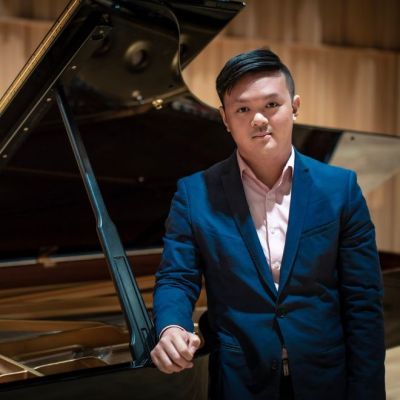
It’s a turbulent and gripping journey – with extraordinary, sometimes violent sounds from both the violin and piano. It is full of turmoil, pain, struggle, there is even a funeral march, but it all leads to a radiant climax with the sound of bells, a real explosion of light and energy. It’s a truly unique piece of music, and I can’t wait to bring it to the Wigmore audience with pianist Edward Leung.
How did you approach the overall structure of the recital?
I considered many options, but this combination felt truly special – music full of contrast, mixing the well-known and the undiscovered, yet all meaningfully connected. Pairing the popular Strauss Sonata with Bartók – now becoming more central to the repertoire – with these two exceptional but rarely performed works creating a bridge between the two works - it is a bit of a marathon! But also very rich musical journey, that I hope the audience will really enjoy.
What has your experience of Guildhall School been like? Why did you choose to study here?
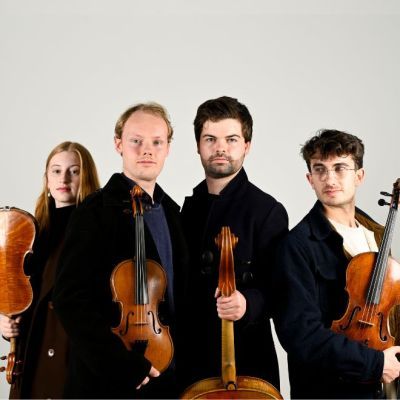
Guildhall creates an incredibly special environment - a unique mix of creativity, professionalism and support. When I first came here, I was immediately struck by the scale and diversity of this creative community - so many concerts, projects, and inspiring people. I quickly realised I just have to stay open and absorb as much as I can. As a violinist, whether playing solo, chamber music, or exploring historical performance, I’ve had the chance to work with exceptional teachers who are not only inspiring pedagogues but also outstanding performers. There is a real connection to the professional world, and the opportunities that come with that have been invaluable.
The 2025 Guildhall Wigmore Prize Recital will be performed by Kryštof Kohout and Edward Leung at London's Wigmore Hall on Sunday 27 July at 7.30pm. Find out more on our Events pages.
